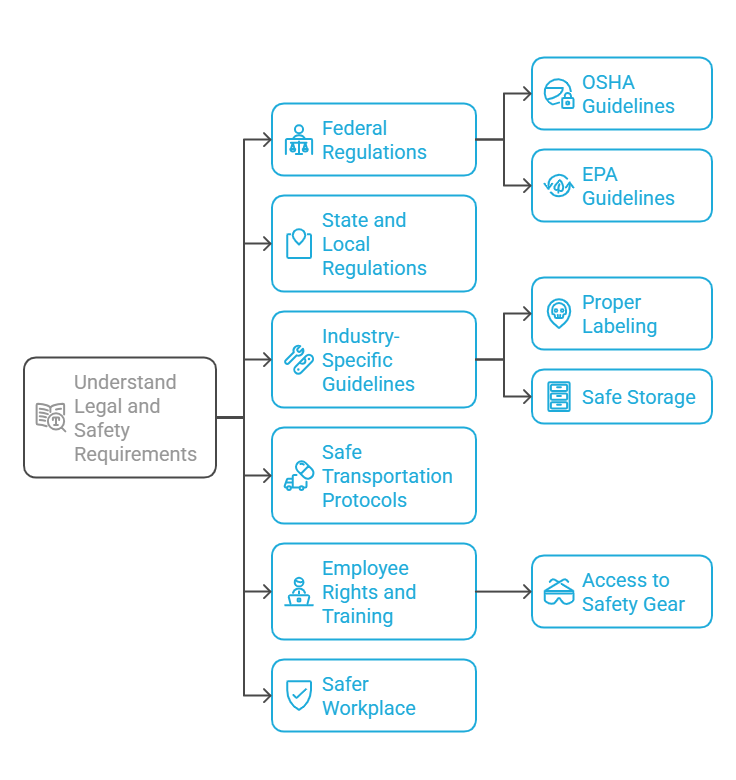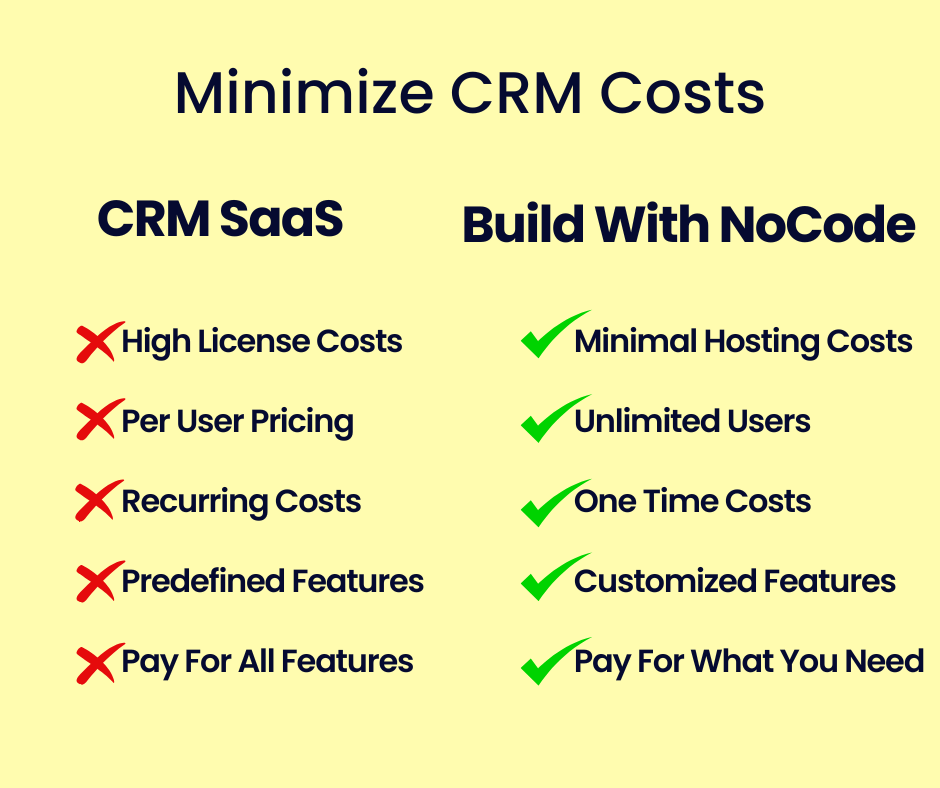Handling hazardous materials is a critical part of many home service jobs. These materials can include chemicals, cleaning agents, pesticides, and more. If not managed properly, they can pose significant risks to both the workers and the clients they serve.
In this field, compliance with legal and safety regulations isn't just a formality. It's essential for maintaining a safe and healthy environment. This is where "home service hazardous waste compliance" comes into play. It ensures that all handling, storage, and disposal practices meet specific standards set by authorities.
Not only does compliance protect everyone's well-being, but it also helps businesses avoid hefty fines. Moreover, adhering to these regulations enhances a company's reputation, showcasing its commitment to high safety standards.
Throughout this blog, we'll explore practical compliance tips. We'll discuss how adopting these practices can help your business meet the necessary legal requirements while ensuring the safety of all involved.
Understanding Legal and Safety Requirements
Importance of Legal and Safety Compliance
When dealing with hazardous materials in home service jobs, understanding and following legal and safety requirements is crucial. These regulations help prevent accidents and ensure a safe working environment.
Federal Regulations: OSHA and EPA
Firstly, consider federal regulations like those set by the Occupational Safety and Health Administration (OSHA) and the Environmental Protection Agency (EPA). OSHA has rules for the proper handling, labeling, and storage of hazardous materials. This helps reduce risks during everyday operations. The EPA focuses more on the environmental impact and safe disposal methods.
State and Local Regulations
At the state and local levels, there might be additional rules you need to adhere to. It's essential to stay updated on these guidelines regularly, as they can vary significantly by location.
Industry-Specific Guidelines and Best Practices
Beyond regulatory requirements, adhere to industry-specific guidelines. They offer best practices suited to the unique challenges of the home service sectors. Proper labeling ensures everyone understands potential hazards. Storage must prevent leaks, spills, or even accidental exposures.
Safe Transportation Protocols
Safe transportation is another key area. Goods must be secured to prevent accidents during transit. Follow protocols to minimize risks to drivers, clients, and the surrounding environment.
Employee Rights, Training, and Safety Gear
Finally, ensure all employees are aware of their rights and responsibilities. They should have access to necessary safety gear and receive regular training on handling hazardous materials.
Creating a Safer Workplace
Compliance might seem daunting, but following these legal and safety requirements systematically creates a safer workplace for everyone.
Leveraging CRM Systems for Hazardous Material Compliance
CRM Systems: More Than Just a Sales Tool
In home service jobs, managing hazardous materials effectively requires more than just awareness. It needs the right tools. This is where Customer Relationship Management (CRM) systems become invaluable. They are more than just a sales tool. They can streamline compliance management tasks effortlessly.
Centralized Storage for Safety Data Sheets (SDS)
First, CRM systems provide a centralized location for storing Safety Data Sheets (SDS). This ensures easy access to critical information about each hazardous material, including handling instructions and emergency procedures.
Tracking Technician Certifications and Training
Next, these systems help track technician certifications and training schedules. This is crucial for maintaining a workforce that is skilled and compliant with current safety standards. Automated alerts can remind your teams when renewals or additional training are due.
Simplifying Compliance Audits
Scheduling regular compliance audits becomes simpler with a CRM. It allows for systematic planning and you can track the status of audits, ensuring they're completed on time. This proactive approach helps in identifying and correcting compliance issues promptly.
Managing Hazardous Material Usage and Inventory
Furthermore, logging the usage and inventory of hazardous materials is seamlessly managed in a CRM. This transparency is vital for ensuring that materials are used efficiently and are not misplaced or mishandled.
A Safer, Smarter Approach to Compliance
By utilizing CRM systems, businesses can bolster their hazardous material compliance efforts. This not only ensures safety but also positions your company as reliable and responsible.
Best Practices for Compliance Management
Strategic Compliance with CRM Support
Managing compliance effectively in home services requires strategic practices. CRM systems can simplify many of these tasks. Here are some best practices that enhance seamless compliance management.
Set Automated Reminders for Renewals and Training
Firstly, use automated reminders for license renewals and training deadlines. These reminders ensure that certifications remain current and that employees are always adequately trained. They prevent overlooked renewals, minimizing the risk of non-compliance.
Systematic Documentation of Client Agreements
Secondly, document and archive client agreements systematically. A robust CRM system can keep track of all contracts, ensuring that service promises align with compliance standards. Secure storage of these documents means they'll be easily accessible when needed, offering peace of mind and proof of compliance.
Generate and Review Compliance Reports Regularly
Thirdly, regularly generate and review compliance reports. These reports highlight key compliance metrics, offering insights into where improvements may be needed. Regular reviews can aid in spotting trends and addressing potential areas of concern proactively.
Real-World Success Stories
These businesses serve as testimonials to the effectiveness of CRM systems in compliance management. Their results show how these best practices can lead to more streamlined operations and a greater focus on safety.
Effortless and Efficient Compliance
Employing these practices ensures that your business not only meets regulatory requirements but does so efficiently and effortlessly.
CRM Features Essential for Compliance
When it comes to managing compliance with hazardous materials, certain CRM features stand out as particularly beneficial. These features simplify complex processes and enhance efficiency in home service operations.
User-Friendly Interface
Firstly, a user-friendly interface is crucial. Managing compliance often involves handling large volumes of data, from chemical inventories to training logs. A CRM with an intuitive design allows users to navigate this data effortlessly. This ensures that tasks are completed accurately and swiftly, reducing the risk of errors.
Real-Time Updates and Alerts
Secondly, real-time updates and alerts are key. Compliance management is dynamic. Regulations and safety standards can change, and unexpected issues may arise at any moment. CRM systems that offer alerts help keep your business agile. With instant notifications, you can address any compliance issues promptly before they escalate.
Integration Capabilities
Thirdly, integration capabilities are invaluable. A CRM that seamlessly connects with other compliance tools and databases streamlines operations. Whether it’s integrating with government databases for regulation updates or linking with specialized compliance software, these capabilities ensure your CRM works well with existing systems to provide comprehensive oversight.
Ensuring Smooth, Safe, and Compliant Operations
These essential features in a CRM empower businesses to maintain robust compliance with hazardous materials. They help ensure businesses operate smoothly, safely, and within all regulatory requirements.
Fuzen's Role in Building Compliance Solutions
Empowering Compliance with No-Code and AI
Fuzen offers an exceptional platform for businesses looking to enhance their compliance management effortlessly. Its nocode tools and Gen AI features empower businesses to create tailored compliance tracking and alert systems directly within their CRM.
Massive Cost Savings
One of the standout benefits of using Fuzen is the substantial cost savings it provides. Businesses can save up to 80% in software development costs. This is because Fuzen requires only minimal charges for hosting, making the development of applications nearly free.
Scalability and Customization
Furthermore, Fuzen ensures your compliance solutions are both scalable and customizable. Thanks to Fuzen's code editors and AI integrations, businesses can easily adjust to evolving regulatory requirements or increased operational demands.
Easy Maintenance and Smooth Integration
Creating apps with Fuzen is not only cost-effective but also results in products that are easy to maintain. These applications integrate smoothly into existing CRM systems, providing a comprehensive solution for managing hazardous material compliance.
Focus on Safety, Not Complexity
Fuzen equips businesses with the tools needed to manage compliance effectively without breaking the bank. It allows businesses to focus on what truly matters—safety and adherence to regulations, while reducing the complexity of managing it all.
Conclusion
Managing hazardous material compliance doesn't have to be overwhelming. With the right CRM for home service businesses, you can stay ahead of regulatory demands. Platforms like Fuzen take it a step further by offering powerful, low-cost, and customizable tools to build compliance solutions without writing a single line of code.
By leveraging modern CRM systems and innovative no-code platforms, you can ensure your team remains safe, your operations stay compliant, and your business continues to grow with confidence.

Pushkar is a seasoned SaaS entrepreneur. A graduate from IIT Bombay, Pushkar has been building and scaling SaaS / micro SaaS ventures since early 2010s. When he witnesses the struggle of non technical micro SaaS entrepreneurs first hand, he decided to build Fuzen as a nocode solution to help these micro SaaS builders.



